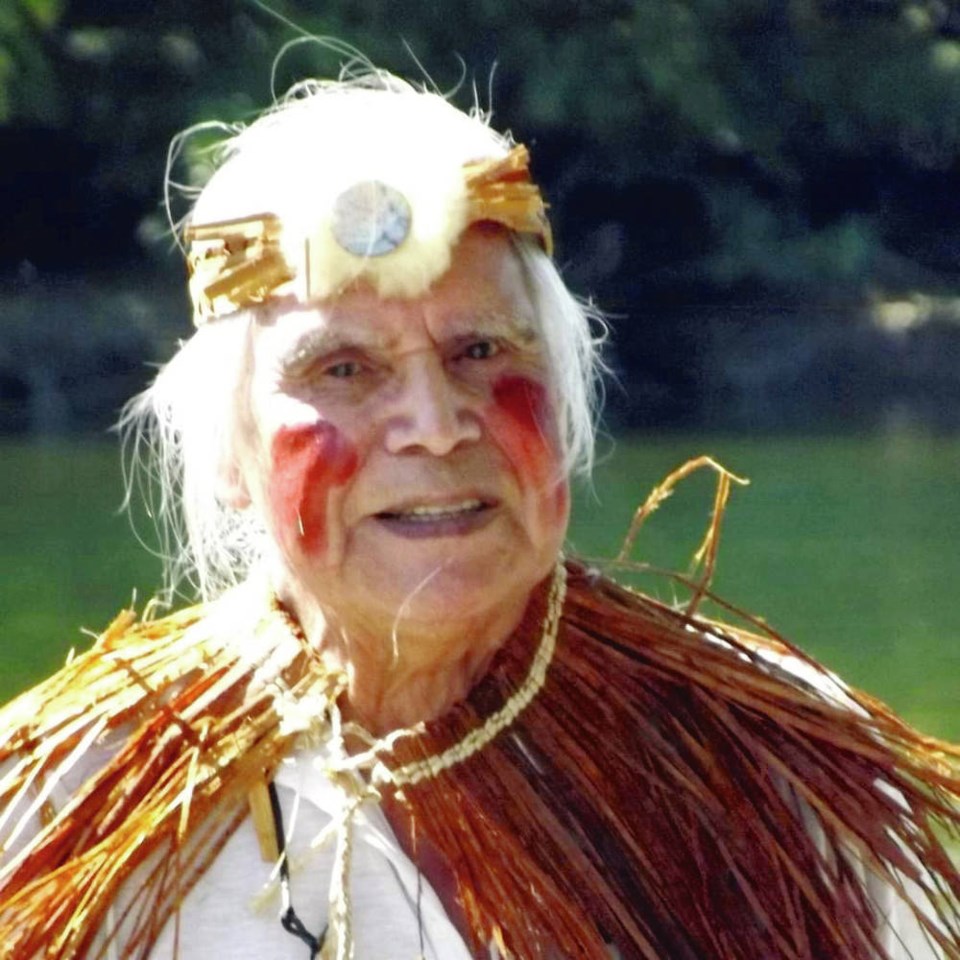When Kayla Lucas came upon her grandfather’s body on a beach north of Tofino after hiking through rugged West Coast terrain, she was seized by pain, but also relief.
“He’s home; he’s home now,” Kayla Lucas said Monday, recalling her thoughts on Saturday.
Hesquiaht First Nation elder Harry Lucas, 80, was last seen at the Ahousaht General Store at 2:55 p.m. on Thursday where he was picking up supplies and fuel, before returning to the water in his 22-foot skiff, and heading for the Hesquiaht village of Hot Springs Cove, which has a population of about 55.
When he didn’t arrive, an extensive search was triggered.
Coast Guard vessels as well as Hesquiaht and Ahousaht response teams, and Tla-o-qui-aht, searched Thursday night and all day Friday. The weather was too extreme to use aircraft, said the Victoria Joint Rescue Co-ordination Centre.
On Saturday there was news from searchers of debris washed up on a beach — a piece of plywood painted the same baby blue as the distinctive hut on the elder’s boat.
With that, Kayla Lucas “snapped” out of bed and with a mobile phone, radio and her dog, persisted through a difficult hike to an isolated beach with rock bluffs and pounding surf.
“It was stormy still and the tide was coming up and it was scary but the adrenalin was pulling me to just get there; it was overwhelming and so powerful,” said Kayla Lucas. Her dog seemed to lead with equal determination and instinct.
“Something was pulling me that way, you know, something within, within my spirit, my soul, was just pulling me that way and our dog knew I think too — knew why he was pulling me.”
Finding her grandfather at the water’s edge was traumatic yet healing.
“I let out my scream and my cry,” said Kayla Lucas. “I almost passed out … and it was our dog that came up an curled up by me when I fell to my knees.” She then gathered herself and radioed others to let them know she had located her grandfather. The number of people involved in the search was extensive, she said. She was just one.
His body lay just minutes away, by boat, from what would have been his arrival point in Hot Springs Cove. “It’s literally just around a couple of points.”
Harry Lucas is being remembered as a father, grandfather, uncle, cousin, nephew, fisherman, friend, husband, language activist, contractor and carver.
He was one of a few remaining people — about 130 — to speak Nuu-chah-nulth, formerly called Nootka. It’s a language with 12 dialects spoken by people on the west coast of Vancouver Island and is considered “severely endangered” as defined by UNESCO.
“He was just so well respected,” said Judith Sayers, president of the Nuu-chah-nulth Tribal Council which represents 14 Nuu-chah-nulth First Nations. His knowledge was immense, said the tribal council in a statement. “Harry strongly believed in exercising our rights and took advantage of every opportunity to do so; he lived his teachings,” said Sayers.
Harry Lucas was a residential school survivor and served as a translator “for all things” including many B.C. Treaty negotations in the 1990s as well as tribal council meetings, said Sayers. He spoke the Hesquiaht dialect fluently and could write the language.
Harry Lucas lived in Port Alberni but “was coming home more often” to Hot Springs Cove where he’d stay with his brother.
He was self sufficient, still ocean fishing, cutting his own firewood, camping overnight, and preparing and smoking his own fish, said Kayla Lucas. And he had a new puppy he was very excited about and had yet to name.
Kayla Lucas describes her grandfather a cultural encyclopedia who was blunt with younger family members — dismissing their excuses — about their duty to carry on their language.
“A part of his teaching was also part of his healing,” said Kayla Lucas, when asked about his residential school experiences. In speaking the Nuu-chah-nulth language he was better able to talk about the stories he remembered, she said.
“He wasn’t just teaching us a language — how to say words and sentences — there was history in it, he was teaching us history in a way that made it stick.”
Harry Lucas is survived by four of 13 siblings, his wife Yvonne and three children, along with grandchildren.
ceharnett@timescolonist.com



